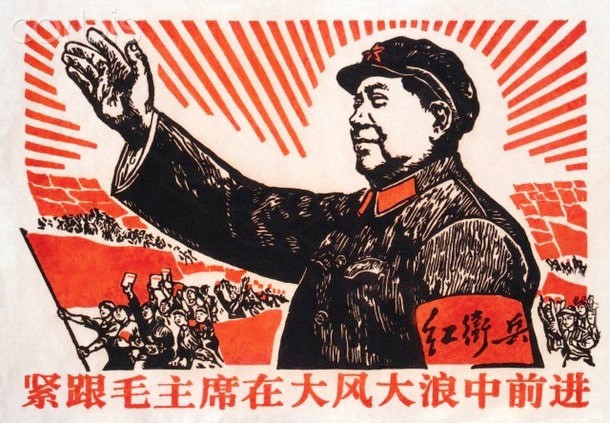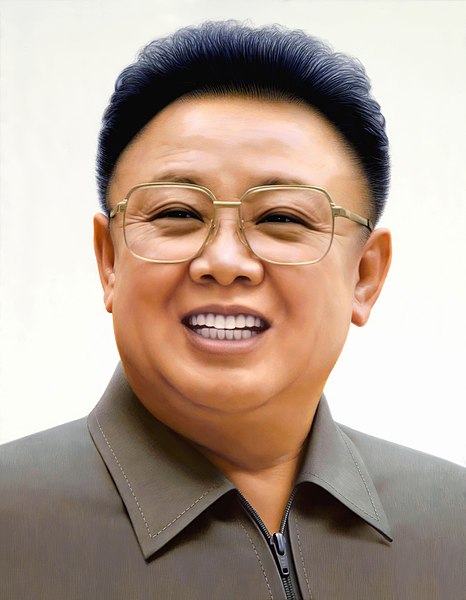I am from China and this reply was translated by DEEPL. In my province there is a high school with outstanding results called Double Ten(双十). We often hear stories about this school. This school was established to commemorate the Xinhai Revolution, which took place on the 10th of October. The Xinhai Revolution overthrew the imperial system and established the Republic of China, which retreated to Taiwan Province and part of Fujian Province in 1949, which was under the control of the People’s Republic of China. During the Cultural Revolution that school was plundered several times because of its name. There were many absurdities during the Cultural Revolution and the victims were not bourgeois, maybe they were just returning from studying abroad, maybe they just had problems with certain people but were criticised for it. Ordinary people in China respected both Deng Xiaoping and Mao Zedong. Although Mao produced mistakes like the Great Leap Forward and the Cultural Revolution, he established the People’s Republic of China and the industrial, political and military achievements of the Mao era laid the foundations for Deng Xiaoping’s reforms. Mao and Deng were not adversaries, they were close collaborators, and together they made China what it is today. (Of course without the Great Leap Forward and the Cultural Revolution perhaps China would be a better place today) Workers did have a high status in Mao’s time, but the peasants, who made up the majority of the population, were not well off. In the north, a peasant could only keep 180 kg of grain, in the south it was 200 kg. In many places peasants therefore kept arable land for themselves and refused to allow it to join collective farms, but these were disparaged as “capitalist”. Some peasants felt that they could not benefit from joining a collective farm and wanted to leave but were refused. Incidentally, today China has about 500 kg of food per person and the quality has improved, not only in terms of corn and potatoes, but also in terms of meat, vegetables and fruit. Mao promised to give the peasants a better life, but from the 1950s to the 1970s the food situation in China did not improve much and could even be described as stagnant, with the vast majority of peasants still living in poverty, excluding some of the model socialist villages, and it was in this context that Deng Xiaoping began his reforms. Deng Xiaoping’s reforms introduced Western capital, which came to China to exploit the Chinese. But on the other hand, the Western investment also increased China’s productivity and a large number of peasants became workers, which did not affect China’s agricultural production, as there were too many peasants compared to the cultivated land. As for agriculture, since Deng Xiaoping no longer collected surplus grain but used taxes, farmers would not only grow 180 kg or 200 kg of grain, they were willing to grow more. Every era has its own problems, but to reject reform because of the problems is like 因噎废食(Refusing to eat because of fear of food getting stuck in the throat) Without Deng Xiaoping’s reforms, socialist China would probably have disappeared long ago, as the Soviet Union did. Marxism is about keeping up with the times. Mao’s measures were out of date and therefore had to be reformed, and the left had to be realistic.
Great leap forward was not a mistake. It’s the unavoidable cost of choosing to be independent and sovereign. If China didn’t want to make the “mistake” of the GLF all they had to do is hand over the country to the Soviet Union like what Japan/South Korea is to the United States. Joint command army, military bases, advisors with authority over the president, all that jazz. Then you would still have your investments and your imports.
By making the “mistakes” of the Great Leap Forward in China and March of Hardship in DPRK, these countries retain the fruits of their own labor and remain in full control of the destiny of their own people into the future.
By avoiding the “mistakes” and taking the easy way out on your knees, you will earn the praises and suffer the consequences. Like how South Korean people can work honest and hard for 20 years and be bought out for cheap and not a peep is to be uttered about it. How the Japanese does the same thing goes much higher and face the same result into their lost decade, lost 2 decades, 3… 4… Like the “leaders” who gets promptly replaced and meet dead ends if they do not serve foreign interests, much less daring to stand up and make their own decisions. Like tolerating extrajudicial bases, like accepting to put targets on their backs and pretend it increase defense, like the treaties that forever serves the need of the “ally” at the cost of yourself. There is no end to this torture. You can be sucked for decades and it will not stop until you die. We are in 2022 and just last week US automakers demanded forced technological transfers of key secrets from South Korea battery makers. You can’t even keep crumbs.
I don’t know why you think the great leap forward took place to keep the achievements of the revolution. The great leap forward was eager for success. The rapid collectivization led farmers to sell off the means of production and reduce their labor enthusiasm before joining the cooperatives. At the same time, they happened to encounter natural disasters, resulting in famine. Another absurd example is large-scale steelmaking. In order to increase steel production, iron products are put into the boiler to start steelmaking.Steelmaking is also to make iron products. Isn’t it putting the cart before the horse? I can only say that without the great leap forward, it may be easier to keep the achievements of the revolution
Rapid collectivization was a move to greatly reduce the cost of trade (movement of goods). It is Mao’s version of Transaction Cost Theory, in the west proposed by Williamson in the early 80’s, where the idea is that the optimum organizational structure is one that achieves economic efficiency by minimizing the costs of exchange.
In Mao’s words to Chen Yun, who is in charge of economics and facing the challenges of coordinating the economy: “You had trouble dealing with the 400 million peasants, this is like a head of messy head hair that’s hard to grasp. I have now put them into 4 million cooperatives, this is like making them into braids so now you can easily grasp all the hair.” In modern speak, instead of the government having to deal with 400 million individual units, Mao’s collectivization greatly improved efficiency by now only having to deal with only 4 million commune units.
The large scale steelmaking is a desperate measure to sustain heavy industry, and most of the stupidity lies with local governments, the central government led by Mao was at worst kept in the dark, not intentionally doing significantly stupid things.
Mostly due to the Korean war, China became a close strategic ally of the Soviet Union and was granted enormous help in building heavy industry. Ones that make steel, oil, tractors, automobiles, planes, which means capacity into tanks, military equipment. This kind of heavy industrial transfer in world history can be count on one hand, it is fundamentally different than getting assembly lines for toys, textiles factories (these already can make developing countries salivate), it came at a great cost but very crucial for independent industrialization.
It is after the pullout of Soviet investments and experts on top of soft “sanctions” due to the breakdown of relations with Khrushchev, that great leap forward was declared as a response. Because the alternative is to lose everything you put in, and suffer increased harm on top. Because the nature of capital projects, losing investment in the middle is literally worse than just never starting in the first place. Once again, like the march of hardship of DPRK, things like the great leap forward movement are solutions crafted that transitioned a dying country into a poor country, not solutions that just transitioned a perfectly stable country into poor country as people assume in ignorance, unable to see the incoming death.
This is not mentioning details that even if great leap forward was dumb, the dumb things often did not come from “Mao” but merely attributed to him. The mass boiling and wastage of steel & iron for example, is a much localized response to the central government’s advocacy for “increased enthusiasm”. It is not like Beijing thought mass boilers would help. In fact, nobody in Beijing did it while it is those far away from the central government that did such acts the most.
The key to evaluate whether an action is good or not lies in it’s result, not for what purpose it is implemented
Yes, which is why I said it’s not a mistake in the first place, results were good… Instead of China losing all its once-in-a-lifetime industries, and not having opportunities to industrialize like the African continent; instead of losing all your economic/military/diplomatic sovereignty and just be a lamb to the slaughter every few years like the rest of East Asia, China went on a path to become the largest economy plus an independent nation in its decision making.
All you got was 3 years of increased deaths (horrible event, yet objectively not anything special for China in the early 20th century), followed by the exact opposite, the largest increase in life expectancy unseen in human history on top of population growth anyways.
If one want to claim the results of GLF is bad, that’s fine, but the idea of historical materialism is you need to present what the alternative action should have been, and what the better result would be from that action, so people can judge if the claims are valid. Otherwise just a vague claim of “GLF bad cuz bad things happened” often heard on this topic, is like saying chemotherapy was bad because it makes you bald and kills your cells, and when pressed nobody can come up with an alternative better than praying it away.
A better solution would have been to refrain from a people’s communisation campaign and to curb the culture of pomp and circumstance so that there would no longer be serious famine. And such a measure would not affect the industrialisation of China. In fact there were institutional problems with Chinese agriculture in Mao’s time. I have a book on Chinese agriculture in Mao’s time, but it’s all in Chinese and I don’t know how to send it to you
Translated with www.DeepL.com/Translator (free version)
I can read Chinese, merely communicating in English to provide information to other readers. Feel free to link Chinese sources, even though I’m probably aware of the bad sides of the famine you want to present. The idea here, among others, is that actions like GLF are done with a reason, often extremely good reasons that outweighed the bad, that again no solid better alternative can be presented even in hindsight, much less back in the moment in time.
If you refrain from communization, how is Chen Yun supposed to realize 统货统销 and distribute goods with the 400 million individual peasants? China today is not communized as you wish, and we are now armed with 21st century technology, what is the plan? Even today, collecting simple electricity bills from Wang family in random rural town #82742 is still more often unrealistic and simply not done. Even getting accurate information on the ground is near impossible house-to-house, and China is decades ahead and vastly more reliable than other largescale developing nations like India in this. Now what is the better measure that can achieve it 70 years ago?
If you curb the culture of pomp, (which is driven by localities, which they even did try to curb) where else is the resources going to come from? How do you pay back debts to the Soviet Union? Why would it not affect the industrialization of China? If steel factory #821 need 1 billion capital investments in year 1959, it’s a hard number. You don’t dump 1 billion you can see it evaporate, period. If you do not want to have industrialization affected, then your claim is 1 billion is going to be raised without GLF, the question is how else do you raise the input of 1 billion.
The people’s communalisation movement led to peasants selling their means of production and livelihood, while local governments exaggerated food production leading to high taxes, which, combined with natural disasters, led to the Great Famine. This was also part of the Great Leap Forward. The Great Famine did not conflict with what China achieved during the Great Leap Forward, but the Great Famine did happen as part of the Great Leap Forward. If the Great Leap Forward did not include the People’s Communization Movement and did not lead to the Great Famine, then the Great Leap Forward was good. that industrial achievements did not necessitate a people’s communisation movement and lead to the Great Famine.
Translated with www.DeepL.com/Translator (free version)
This is true, but notice how the man-made aspect of the famine is caused by “local governments exaggerated food production leading to high taxes”, like you say. This is hardly a mistake of “Mao”. If I only make 80k, but decide to pretend to be rich and declare a 500k income on my tax return, do I blame the tax authority when I pay the corresponding taxes and starve?
Mao’s fault in this is merely trusting that officials weren’t just lying in order to shoot their own foot. Not to mention the government needed the money after Soviet investment dried fast. Even then, when output numbers were becoming suspicious and contradict new information, he was among the first to call it out. Not to mention we still have videos of his colleagues like Liu & Deng visiting satellite farms. The narrative that GLF is categorized under Mao’s mistakes, and presenting Deng as a contrast to such types of mistakes, is a contrast that does not stand when you look into it.
I feel like lots of those who criticise the goals of the GLF forget that this was a mass driven movement that the people themselves had to struggle through to gain revolutionary experience. Yes, leadership set expectations, but the intent was for the working masses to forge their own revolutionary destiny. It’s not surprising that great failures came from this as well. It’s a country of mostly semi-feudal peasantry finding it’s own way into the future. We have the benefit of judging it in hindsight.
Mao Zedong did not want it to become a violent movement, but unfortunately, the Cultural Revolution was out of control, and people even used it to report private hatred. Schools will even be criticized for teaching capitalist English, students will be exiled to remote mountainous areas, and historical sites will be destroyed because they were built in the feudal era. Therefore, the cultural revolution is a painful lesson. We must learn a lesson to make the future better. Translated by Baidu
Exactly, 90% of the country was illiterate pre-communism. China was horribly down in a century of humiliation and less developed than Africa back then. Anything at all is a miracle but I’m not even going into this line of perfectly valid justification.
Since the real issue is when you look into it, things like GLF had layers and layers of purposeful achievements unspoken, at the obvious costs that are the only being talked about and insistently attributed to one single man for political reason.
And nobody can come up with a better plan to the dilemma of the late 50’s to this day, and outside of these discussion places, the average lib is completely ignorant and don’t even have the mental power to conceive that they had a problem and GLF was a response to the incoming disaster in the first place, not just someone randomly waking up and creating a disaster because dumb clueless dictator.
The evidence for the Marxist-Leninist position becoming increasingly correct is a few reddit posts and one excellent Roderic Day article. Lol. A lot of my pro-China comrades hate Duterte and support Maoist revolutions in India and the Philippines, as do I, not even Joma hates China as much as online Maoists do.
This chasing of ideological purity and discarding real-world information is undialectical.
In fact, Rosa Luxemburg made another great point here. Marxism should be treated as a living thing, at its best when it is interacting with the world, but all of the meaningful interactions of the past forty years have been Maoist actions. Marxism-Leninism and the respective, remaining ‘Marxist-Leninist’ organizations and parties have been caught-on-the-back foot, or docile, or lacking in direction, with few consequential actions taken, at best, and useless, irrelevant, if not outright misguided or wrong in many parts of the world at worst.
Marxism-Leninsm-Maoism has yet to produce a successful revolution, unless you are counting Nepal which I know you hate to talk about so let’s discard it. How can you look at what Marxist-Leninist countries have done over the past fifty years and say that Marxism-Leninism has not advanced? It has advanced greatly, but you just dismiss these advances as “revisionism”.
Nepal
What exactly happened in Nepal? I remember, about ten years ago, groups like the RCP, LLCO, etc., spamming headlines like “Nepalese communists uphold Dengist path, pluck defeat from the jaws of victory.” Other than that I know nothing about it.
The early claim that MLs have done nothing the last 40 years seems pretty unfair, while partly correct in terms of actual revolutionary gains in the world, I don’t really see it as a useful critique. The left was devastated by the loss of the USSR which was the principle funder and supporter of a very large number of orgs, not only that but organising bases were simultaneous crippled by globalisation. In light of this is it really any surprise that the left went into recession while it rebuilt? I see no magic button available for preventing that dark period.
Yeah lol, just look at China’s metrics under SWCC. Poverty elimination, life expectancy gains, world trade… are these “doing nothing”?
Right, but generally speaking at a global scale we should take into account just how much the USSR supported the global effort. Consider how many far right reactionary orgs and groups would suddenly collapse if the umbilical cord to US taxpayer funding were cut by the US collapsing tomorrow?
The left had to rebuild. It was incredibly dependent on the USSR which ultimately played a large part in the recession. I have wondered numerous times whether China’s lack of significant help for movements internationally might also be motivated by the fact they’ve analysed what happened to the global movement. The reliance on the USSR was arguably a bad thing as it fucked us when it collapsed and they might want new movements to have no reliance on them which arguably makes them more resilient.
Reconstruction takes time without those kinds of resources.
China has four unstable regions - Xinjiang, Tibet, Taiwan and Hong Kong. Sixty years ago Premier Zhou Enlai promised that China would not interfere in the internal affairs of other countries, so now China is only videoconferencing and sharing its experience with communist parties in other countries, rather than exporting its revolution directly to the outside world. If China exports its revolution it will be met with hostility from the most important countries in the world, which is not good for China, and if it exports its revolution, China will not be able to stop imperialist intervention in Xinjiang, Tibet, Taiwan and Hong Kong. (translated by DeepL)
He supports Cultural Revolution. I can say it’s not a good article just by this point
If I wasn’t really busy and this wasn’t so long, I’d tackle the arguments, because this is rehashing everything the maoists are completely wrong about, disproven by history. I hope others tackle these arguments in the spirit of zhou enlai and deng xiaoping.
I stopped reading at the point when he quoted Marx about top-down. Literally the same quote was also chosen by mensheviks almost 120 years ago for basically the same purpose.
Eastern Marxist Leninists have refuted this position multiple times. I refuse to be apart of this community if its going the route of maoists.
Maoists can post articles here, but they don’t control the community. You are 100% allowed and encouraged to ridicule them and their dogmatic ideas.
Bullying dogmatic people is based
I’m thinking of making a response post to this. I did it with Enigma’s little Russia essay and lots of people appreciated that, so maybe I should keep the ball rolling!
Sweet!
Dash is one of the few respectable Maoists I ever meet. Even though we’re ideological different
I’ll keep an ear out then
I’m not asking to support him. He isn’t those Gonzalo Maoists . I believe
Im not saying I will, I said I will at least listen to what they say, although hesitantly
This is a long essay, so right now I’ll just respond to a few points.
(1) Cultural Revolution. This is a very complicated topic, with much more nuance than either ultras or ML’s give it. But to speak very broadly, the problem isn’t that it mobilized the people to do nasty things to the bourgeoisie; the problem is that it was voluntarist and anarchistic. Hurting and shaming the bourgeoisie is a worthy goal, but it accomplishes nothing if it isn’t accompanied by a real increase in people’s living standards. The tendency of late Mao, and even more, of the Gang of Four, was to think that communism could be built simply by instilling in people the right ideology; which is idealist rather than materialist, for ideology is a function of material conditions. Thus Deng’s corrective, “socialism is not poverty,” was desperately needed. One can argue that Deng went to far, and ultimately fell into right deviation. But we should not allow this to obscure the fact that Gang of Four were massively left-deviant, and that Deng’s occasional rightism was simply the inevitable reaction. Thus, if China during the 1990s came dangerously close to neoliberalism, it was ultimately the fault, not of Deng, but of the Gang of Four.
The DPRK, by the way, does uphold a cultural revolution – it is an integral part of the Three Fronts theory, so the writer of this article is wrong again. The difference is that here the cultural revolution is ongoing process, proceeding alongside economic development and gradually transforming the whole of society. It is planned, rather than voluntaristic. And this brings us to the central problem with “Maoism” and all forms of ultraleftism. Processes need to be guided; you cannot simply hand people guns and assume good things will happen.
(2) On “Vladimir-Fucking-Putin.” The author finds it odd that MLs give critical support to the Russian Federation in its fight against Ukrainian Nazis, but not to the Shining Path in its struggle against the Fujimori and his goons. The difference is this: Putin, by stomping the Ukro-Nazis, is actually performing a useful service. What Gonzalo did was the reverse of useful: it alienated the masses, and drove people who otherwise might have sympathized with socialism straight into the arms of the Fujimori regime. There is a reason that many Peruvian leftists today believe (in the face of any real evidence) that the Shining Path was a CIA op. Which brings us to –
(3) Gonzalo was violent, but so were the Bolsheviks. The implied “goodness” of violence smacks of anarchism, or of Georges Sorel. As Marxists, we are not for violence; we merely recognize its occasional necessity. We don’t do the fascist thing of walking around and advocating violence for its own sake; that is adolescent. We would all prefer a peaceful transition to socialism; the problem is that the bourgeoisie never lets it happen. We advocate, not violence as such, but the right of people to defend themselves by any means necessary. If some Gonzaloite can explain to me how killing pregnant women and scalding peasants to death constitutes necessary and appropriate revolutionary violence, I’ll gladly become an ultra; but until then, I’ll keep thinking of the Shining Path as basically Azov with a red flag.
(4) Why don’t AES states export revolution anymore? The DPRK does, in a limited way; obviously it can’t do much given present circumstances, but they do give what aid they can to revolutionary movements around the world. The question really comes down to: Why doesn’t China export revolution?
The flippant answer is that we should be grateful China doesn’t; after all, their attempts to export revolution during the 1970s led to some of the strangest foreign policy the world has ever seen. The serious answer is this. Global capitalism is in its last, decadent stage: accumulation through destruction. No longer able to produce real wealth, the bourgeoisie create wealth in the imperial core by destroying it elsewhere. Thus, it is imperialism that now must export revolution in order to survive. To uphold stability, and global trade, in the face of never-ending destruction is now, ironically, the revolutionary position.
Appreciate your answer, especially for the cultural revolution. It always irked my how ML’s just dismiss it without analysis. This could lead to incredible danger in the future, where it could lead to abandoning the idea altogether, ignoring not even Mao, but the post-october Lenin realising that precisely this is the hardest part of socialist revolution, which needs to be done if we are to think of truly building the socialism.
I ideologically align pretty closely with the average Maoist (I’m still a juvenile punk, what can I say?) but is supporting AES not a useful rhetorical strategy if nothing else? Many folks in the west see socialism as equivalent to propagating poverty for the sake of equality. So even if it’s ultimately BS to call the ML states socialist (as the Maoists hold), some pre-ideological thinking individual we’re trying to propagandize cannot make that determination. Seeing China succeed while claiming to support ML seems like something we can take advantage of. Clearly the US cannot go the route of contemporary Chinese development so I don’t even see how this even causes ideological confusion down the line—a point I don’t see as especially convincing as an individual organizing in the US anyway. Unless China later states that it was pretending to be socialist the whole time just to get American leftists to support capitalism without knowing it, what could go wrong?
Edit: admittedly I finished up my business before finishing the reading so someone please inform me if I missed something that already addresses my point in the original article and I’ll go look for it.
Maoists do make compelling points. As communists we should be considering the Maoist point of view without shit-slinging and we should consider criticisms to be in good faith.
The obstacle for me is that Maoist organizing has only gotten weaker support from the masses since the 90s and there has not been any successful projects. From an analysis of theory standpoint, I often find them spot on in many of their observations. The global communist movement is a lot weaker than we (in the West at least) would like to admit. China may be making advances for China and helping to weaken Western imperialism’s hold on the world, which we all obviously applaud, but there’s no concrete evidence to suggest that they will be leading the global communist movement from a place of ideology anytime soon.
We are in a period of retreat and concession to the bourgeoisie still. Are there encouraging signs for the future? Sure. But we’ve got a long way to go. It’s no surprise that there are some overwhelming obstacles for M-L parties in the world that have nerfed the revolutionary energy. But communists are still in the position of gaining support among the masses and you can’t force the revolution without a truly revolutionary situation, especially after 30+ years of unimpeded neoliberalism. Perfect theory is never perfect in practice, and Maoism from Peru and the RIM is proof of this. Meanwhile, the general strike happening in India is a result of the M-L party organizing workers, not the Maoist party. We’re really only just getting started. We can’t let our desperate hopes put the cart before the horse.
Sorry if this comment wasn’t the most clear or connected. I’m just kind of spitballing what’s coming to mind. I personally thought it was a good article. Thanks for sharing.
but there’s no concrete evidence to suggest that they will be leading the global communist movement from a place of ideology anytime soon.
SWCC, the Doi Moi reforms, and other similar measures are showing that utilizing markets to serve socialism is 100% effective. China is either already beating or about to beat the US on every meaningful metric: % of world trade, life expectancy, home ownership rates, education, patents / tech advancement… etc.
Maoists on the other hand are still playing theory games in their heads, constantly bickering with each other about who is more revisionist, and killing and alienating themselves from every group / peoples they encounter.
He supports Cultural Revolution. I can say it’s not a good article just by this point
Yes, this is completely disqualifying.
why shouldn’t we support the cultural revolution?
I have to say during Cultural revolution you could attack anyone and then many red guards would follow you. He mustnt to be capitalist or rightist. Many schools were destroyed for it’s teachers, names or histories. During Cultural revolution, the laws didnt work. Imaging you argued with your neighbour yesterday and now he is leading hundreds of red guards standing in front of your home.That was happening every day
I would like an answer to this too.
I have to say during Cultural revolution you could attack anyone and then many red guards would follow you. He mustnt to be capitalist or rightist. Many schools were destroyed for it’s teachers, names or histories. During Cultural revolution, the laws didnt work. Imaging you argued with your neighbour yesterday and now he is leading hundreds of red guards standing in front of your home.That was happening every day
I’m assuming most of us are aware the cultural revolution as it occurred in China. But separating the GPCR from the hypothesis of Cultural Revolution in general, hasn’t history demonstrated that a Cultural Revolution/mass struggle against reaction in some shape or form will be necessary/inevitable as long as classes remain post-revolution?
Why should we not view the GPCR as a first attempt at Cultural Revolution, a theory that needs more exploration, rather than its failures being wholly indicative of how future attempts will go? Genuinely asking
You are right. I just focused on the absurd Cultural Revolution of the last century, and did not deny the possibility of the future
deleted by creator














